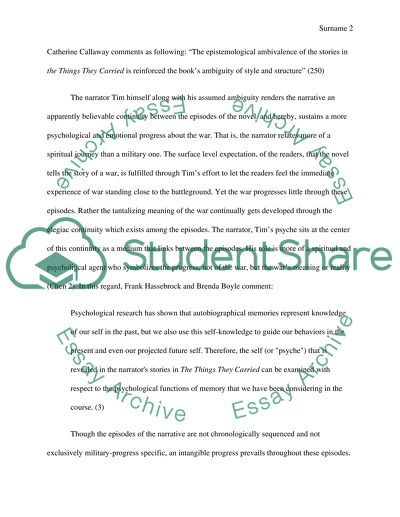Cite this document
(“The Things They Carried by T Research Paper Example | Topics and Well Written Essays - 1500 words”, n.d.)
The Things They Carried by T Research Paper Example | Topics and Well Written Essays - 1500 words. Retrieved from https://studentshare.org/psychology/1458143-the-things-they-carried-by-t
The Things They Carried by T Research Paper Example | Topics and Well Written Essays - 1500 words. Retrieved from https://studentshare.org/psychology/1458143-the-things-they-carried-by-t
(The Things They Carried by T Research Paper Example | Topics and Well Written Essays - 1500 Words)
The Things They Carried by T Research Paper Example | Topics and Well Written Essays - 1500 Words. https://studentshare.org/psychology/1458143-the-things-they-carried-by-t.
The Things They Carried by T Research Paper Example | Topics and Well Written Essays - 1500 Words. https://studentshare.org/psychology/1458143-the-things-they-carried-by-t.
“The Things They Carried by T Research Paper Example | Topics and Well Written Essays - 1500 Words”, n.d. https://studentshare.org/psychology/1458143-the-things-they-carried-by-t.


